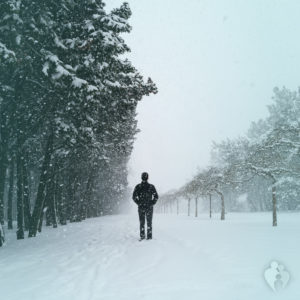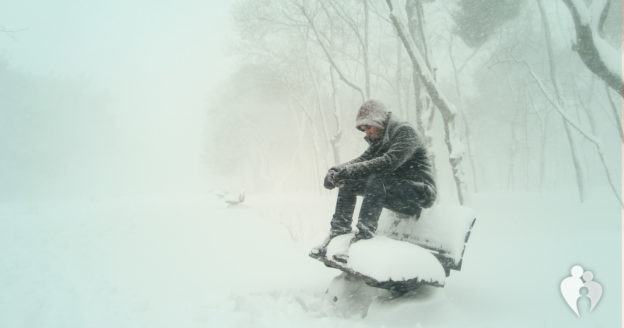Alcoholism is a complex condition, and no two cases are exactly alike. However, environmental factors can contribute to alcoholism in various ways. It’s important to understand how things like weather and climate influence behavior and the times of year that can inherently encourage substance abuse. Several studies* have reported that individuals living in colder, more overcast northern climates tend to consume more alcohol than people living in more temperate climates. Additionally, alcohol intake increases for most drinkers during colder weather for a number of reasons. Anyone struggling with alcoholism needs to acknowledge the inherent risks of winter weather and alcohol.
The Link Between Cold Weather And Alcohol Intake
Humans are very reliant on vision, and the colors in a person’s environment have a profound effect on mood and attitude. During the winter, trees lose their color and the landscape in many colder climates can be a mix of white and grey that is generally dismal for most people. Alcohol can be a coping mechanism, and patterns of alcohol use in the United States generally show that people living in colder climates consume more alcohol and suffer from more alcohol-related diseases than people living in more moderate climates.
Physical Effects Of Alcohol Consumption
To understand the impact of weather on an alcoholics’ risk of increased alcohol intake and hastening addiction during cold weather, it is vital to understand alcohol’s effects on the human body and how cold weather encourages more drinking. Alcohol is a vasodilator**, meaning it increases blood flow to the skin and warms the nerve endings that sense temperature. Drinking alcohol can create a feeling of warmth and make cold weather feel a bit more bearable.
Alcohol consumption, alcohol intake per capita, and the percent of a population that consumes alcohol all tend to be higher in colder climates, whereas warmer climates tend to report lower averages across these metrics. There are several cultural factors that come into play, but there is clear evidence that colder weather and bleak surroundings encourage more alcohol consumption.
Increased Risk Of Winter Illness And Injury
Alcohol affects the body in various ways. When cold weather increases alcohol intake, an individual is more likely to hasten the development of alcohol-related medical conditions and suffer from alcohol-related injuries. Alcohol decreases inhibitions and may incline an individual to engage in riskier behavior than he or she would when sober. Alcohol also impedes coordination and judgment, increasing the risk of winter injuries from slips and falls on ice and DUI accidents.
Winter weather can also be dangerous, and an individual under the influence of alcohol may not be able to recognize this danger. Frostbite, hypothermia, and contracting winter illnesses are more likely when a person forgets to bundle up for cold weather or spends too much time in the cold while under the influence. Alcohol may cause a sensation of warmth, but in reality it thins the blood and makes it more difficult for the body to maintain an appropriate temperature.
Developing A Plan To Minimize Cold Weather Risks

- Set realistic goals. Going “cold turkey” can be dangerous for an individual with severe alcoholism and cause an onset of potentially life-threatening withdrawal symptoms. Instead of attempting to stop drinking all at once, try limiting alcohol intake.
- Eat healthy. A healthy diet encourages healthy organ function and helps the body metabolize alcohol. Try to eat healthier, protein-rich foods during the winter weather and include immune system-boosting foods in your diet to protect from winter illnesses.
- Avoid drinking triggers. Sometimes a change to your typical routine can encourage lower alcohol consumption. If there are elements of your schedule or environment that encourage you to drink, try limiting your exposure to these influences if possible.
- Learn how to say no. Even in temperate climates, the winter and holiday season inherently encourages alcohol consumption during family gatherings and holiday parties. If you are accustomed to partaking in alcohol during winter events like these, learn how to say no and find ways to enjoy the company of others without alcohol.
These are just a few ways to limit alcohol consumption during cold weather and minimize the associated risks. However, it is crucial to be able to recognize when an alcohol abuse problem has escalated to the point of requiring treatment. If you find yourself unable to cut back on drinking, take this is as a sign of addiction and think about entering treatment. When a loved one struggles with alcoholism, an intervention during the winter can help prevent alcohol-related injuries and illnesses and encourage him or her to seek treatment.









 All Rights Reserved |
All Rights Reserved |